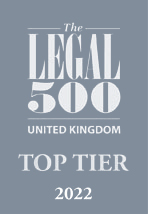Commercial Leases Post Covid-19 Pandemic
As Northern Ireland seeks to navigate a phased exit to lockdown this article seeks to broadly review some potential implications with respect to future commercial tenancies.
Landlord Protection
As a way of protecting rental income, commercial landlords can request several things from a tenant on the grant of a new lease (or upon a request for consent to assign). In particular, these can include:
- A Guarantor. The purpose of a guarantor is to effectively “step in” should the tenant be unable to meet its The guarantor becomes responsible for the payment of rent in the event of default by the tenant.
- Rent Deposit. This is where a sum as a proportion of rent is requested by the landlord at the start of the term to be held by the landlord. In the event that rent due under the lease is not paid then the landlord can deduct such outstanding sum from the amount rent deposit secured.
- Interest. A lease usually contains provisions that interest is payable in the event that rent is unpaid.
Potential Implication
Covid-19 has not discriminated in its adverse impact on business and has seen a number of prominent retail stores enter into administration notwithstanding the pre-existing high street struggles. In light of this, landlords may well seek to move towards insisting on both a Rent Deposit and a Guarantor in future tenancies. While seeking to recover interest may be worthwhile it may be of limited practical assistance in an instance with the tenant who is unable to afford the capital rent payments notwithstanding any accruing interest.
Landlord obligations
In respect of many office premises or tenancies granted with respect to parts of buildings, usually a landlord will maintain the common parts subject to contribution by a tenant of its proportion of such cost by way of service charge.
Potential Implication
Landlords may well want to ensure that such extra costs are expressly covered in future leases. This is in consideration of the likely enhanced cleaning procedures that will be required and other safety measures which may include the installation of sanitiser stations or Perspex screens or other such health and safety requirements as may be necessary. Landlords may need to consider how such services would be provided for, particularly with reference to the RICS Professional Statement on Service Charges in commercial property, which states that all expenditure that the landlord seeks to recover must be in accordance with the terms of the lease. It may be a future consideration to expressly include additional cleaning or other expense that may be incurred in light of government guidance.
Insurance
Some companies had the protection of an insurance policy which covered business interruption as a result of a global pandemic or other health event.
Potential Implication
For those companies lucky enough to have the benefit of an insurance policy covering a pandemic or global health event, such policies may be more expensive or not available into the future.
Suspension of rent
Typically, a commercial lease will include a provision whereby rent is suspended for a period of time but this commonly only extends to damage or destruction of the premises by an insured risk.
Potential Implication
It may be however that a tenant seeks to extend this provision to cover the event that the premises cannot be occupied at all regardless of what the triggering event outside the control of the tenant would be. Landlords may be likely to resist this, unless it is insurable, but there may be some negotiation around potential flexible solutions that could be put in place such as has been seen throughout the pandemic by way of temporary suspensions to be repaid either during the remainder of the term or by extending the lease term.
Break Clause
Some leases are negotiated to include a break clause which will allow the tenant to effectively “break” the lease before the term expiry. Usually this requires at least six months’ notice.
Potential Implication
There may be a shift into the future to reduce this period of time or allow for more regular break points or break provisions specifically triggered by “Force Majeure” incidents such as pandemics under which a tenant is unable to use the premises for a specific period. This may not be an appealing prospect to a landlord in terms of security of rental income and investment value and would need careful consideration by a tenant that whilst exercising such a break may temporarily relieve financial pressure, the additional cost of relocating, incurring fit out and other administrative matters on a more regular basis, as well as the likely increase in rent, may be outweighed.
Summary
Ultimately, it will be a test of time to see how the commercial property lease market emerges post pandemic. This article is intended as a brief overview of the potential implications to future commercial leases as at June 2020 and should not be construed as legal advice. Elliott Duffy Garrett can offer tailored specialist advice with respect to any of the above or other commercial property related issues.
Should you require any further information or advice on dealing with specific issues such as data protection or employment matters generally, please contact the Commercial Property Unit:
stewart.nash@edglegal.com pierre.boitel-gill@edglegal.com
leo.brown@edglegal.com claire.mcnamee@edglegal.com
Tel: 028 9024 5034
Copyright 2020 Elliott Duffy Garrett
Every care has been taken in the preparation of this bulletin; readers are advised however to seek legal advice in relation to specific issues.



